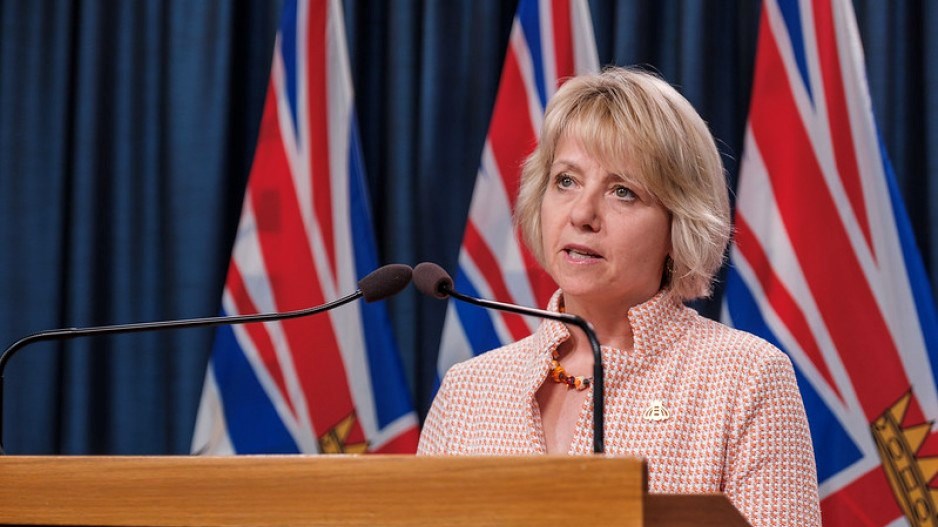British Columbia generally fared better than much of Canada in protecting civil liberties while handling the COVID-19 pandemic, says a Canadian Civil Liberties Association report card.
But, no part of the country was immune from the fear, rather than the infection that accompanied the virus across Canada.
“How quickly our country went from coming together in peace, caring for each other, to fearful, righteous, divisive, and indignant aggression against perceived enemies of disorder – deemed COVIDiots,” association executive director Michael Bryant said in the report. “A public health pandemic became mischaracterized by governments as a public order crisis, thanks to public anxiety, anger and fear.”
Indeed, B.C., like other provinces, issued dozens of ministerial orders as part of its crisis response. Some dealt with information sharing, others with adding health care workers. B.C.’s high profile orders came from provincial health officer Dr. Bonnie Henry as the province was shut down to contain the pandemic.
The association said many laws were enacted in order to have Canadians modify behaviour or isolate during the pandemic. Across Canada, the report said, the rules saw enforcement officers charging people with offences such as driving into the North West Territories from Alberta, standing in a playground, congregating for a birthday party, violating physical distancing rules or sneezing near someone.
“This extraordinary governmental effort at mass behavioural modification, for public health reasons, had the effect of limiting our civil liberties,” the report said.
In issuing its report card, the association reviewed Canada’s emergency measures, grading them for rationality, proportionality, and on how they might be justified in a free and democratic society.
Questions were made of each measure taken: does it have an important objective, is it necessary, is it proportionate and is it time-limited?
Generally, the association found, “laws regulating physical distancing in Canada are often underdeveloped and poorly administered. Penalties are disproportionate and not clearly effective. Provincial and territorials travel bans are also disproportionate, irrational, and unconstitutional. Across Canada, emergency policies have also had a severely disproportionate impact on marginalised persons.”
Those marginalized people included the elderly, inmates and the poor.
B.C. saw a significant number of deaths in seniors long-term care homes and a high infection rate at a federal prison facility in Mission.
But, the report said, “Of all the provincial and territorial jurisdictions, British Columbia had the greatest success to date in managing the pandemic. B.C. lowered and eradicated the first wave of the COVID’s spread thanks primarily to its early response and leadership, without limiting civil liberties to the extent seen in other jurisdictions.”
Indeed, the report noted, initially, it was jurisdictions’ public health officers who were initially the face of pandemic response. That, however, soon shifted to first ministers, the report said.
“A notable exception was the British Columbia experience, with its provincial health officer, Dr. Bonnie Henry, achieving international prominence for her leadership and results,” the association said.
The association also found B.C. to be “the most permissive province” when it came to allowing public gatherings in open spaces during the lockdown period.
“B.C. allowed gatherings of fewer than 50 persons. Next most liberal was Alberta, which limited gatherings to fewer than 15 persons. Manitoba, New Brunswick, Saskatchewan, and Yukon restricted gatherings to 10 persons. Ontario restricted gatherings to five persons,” the report said.
But, the report said, while B.C. did not mandate businesses closures, “the city of Vancouver ordered high-risk businesses to shut down and issued fines to the recalcitrant.”
While some provinces sealed their borders from other Canadians for the first time in the country’s history, the association gave Ottawa a C+ grade for closure of the international border – with the exception of diving families across the Canada-US divider.
“The omission of an exception for cross-border families has been disproportionate in theory and practice, subjecting cross-border families to arbitrary decision-making by individual border guards,” the report said.
The report, however, comes with a strong warning: “The pandemic has led to a thousand impositions on civil liberties that might feel minor alone, but which taken together represent an extraordinary change to civil liberties in Canada. These include mandatory masks and temperature tests in some private sector settings including retail outlets and large workplaces, limited access to public spaces, attempts to halt drive-in religious services, and new government limits on “misinformation”. Each of these constrain freedoms in what some might consider small ways. But taken together, they indicate a major shift in Canada towards a more designated, circumscribed, and government-ordered way of doing things”
@Jhainswo



